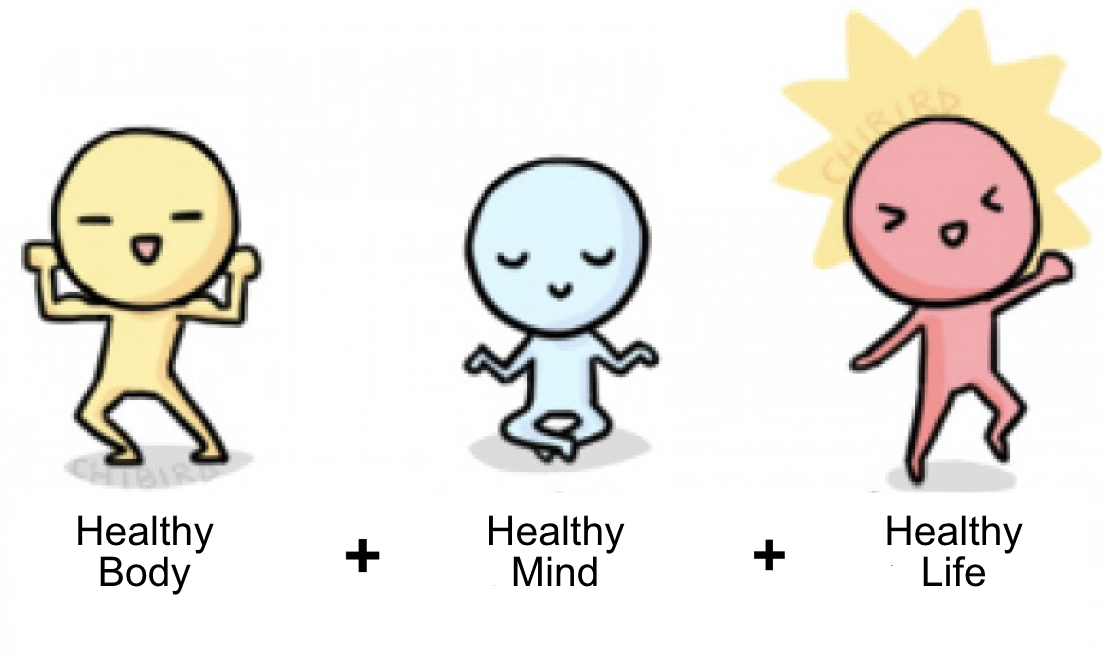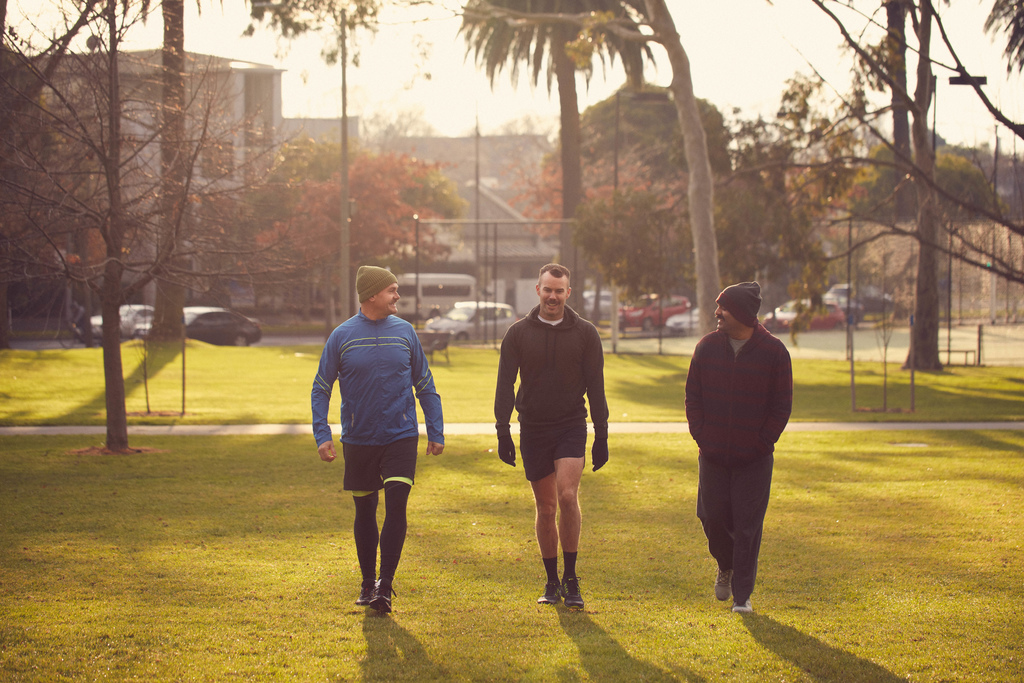As we get older, our mental activity slows down and we are more prone to certain diseases. However, it is possible to take some precautions to prevent this. Scientific studies, especially in recent years, have been very helpful.
The balance factor, which is essential for a healthy life, is very important for this. We can say that a balanced diet, a balanced sleep pattern, in short, a balanced life is the formula we are looking for. Sports are also essential for a balanced life. We should definitely include physical movements in our lives for better mental health. In the same way, we need to keep our minds fresh with activities that keep our minds busy. In this article, we have compiled some things you can do for a healthy mind. Choose the ones that suit you and have a healthier mind!
For a Healthy Mind;
Watch what you eat: There are 2 important substances that are scientifically proven to prolong life:
- Eating less (calorie restriction)
- Movement (exercise)
These two factors are important for our mental health.

Here is a list of things to do for mental health:
- Feel truly hungry once a day. If food is eaten before the feeling of hunger is fully formed, the hormone ghrelin is not secreted sufficiently from the stomach. This hormone is only secreted in a state of complete starvation and its most important effects include increasing the secretion of growth hormone (making the body vigorous) and contributing positively to the functioning of areas of the brain that are particularly involved in memory.
- Fast on certain foods once in a while. Meat and sugar fasting is particularly beneficial. Eating similar foods all the time is also “routine” and should be avoided. In addition, starvation and the avoidance of certain foods for certain periods of time facilitate the detoxification and regeneration of brain tissue.
- Learn a new word every day. Every contribution to vocabulary has a positive effect on mental health by directly affecting cognitive processes.
- At least once every day, get tired enough to sweat at least a little. Movement improves blood circulation in the brain and helps to regulate mental activity. In addition, moving enough to sweat regulates the entire metabolism and increases the levels of many hormones beneficial for the brain.

- Learn the etymology of three to four words each week. Learning the meanings of words along with their origins increases the capacity and quality of language perception areas and thus intellectual brain functions.
- Learn a new motor skill once or twice a year. New motor skills, such as learning to play an instrument or a new sport, expand our brains by enabling the brain to produce new cells and new connections.
- Try to generate questions on topics you do not know (the answers are not important).
- Take up at least one art field. Any activity in artistic fields activates the brain’s holistic perception and production systems, ensuring that the entire mental system works in harmony.
- Increase the frequency with which you use pen and paper. As we move away from using pen and paper in the digital age, we are deprived of very important and subtle skills such as writing and drawing. Unless these abilities, to which large areas of the brain are allocated, are used, structural deterioration and degeneration can begin in the relevant areas.
- Avoid routines. Our brains don’t put effort into routine tasks, no matter how complex they are, and get no benefit from them. Breaking the routine stimulates consciousness and increases our level of awareness. You may have heard that solving puzzles like Sudoku can protect against neurodegenerative diseases like Alzheimer’s, but this is not necessarily true. The routine of a puzzle like sudoku, no matter how mentally complex, reduces the brain’s development and resistance to destructive diseases.
- Try to use alternatives to the routes you travel every day. It has been proven that using different routes structurally improves the brain.

- Learn to use a mindmap. Mind mapping techniques used for planning and thought flow are very beneficial for cognitive functions. There is a lot of relevant software available on the internet.
- Take a walk before making serious decisions. Light exercise can regulate the brain’s circulation and metabolism, allowing you to think and make decisions more clearly.
- Love everything you can and try to keep your loved ones close to you. The feeling of love triggers a series of changes in the brain that have very positive effects.
- Pay attention to the millions of details and connections you may marvel at in everyday events, and take notes if necessary. You will be amazed at what you can see and the rate at which your perception opens up. Photography is a good place to start.
- Constantly question the balance between what you believe and what you do. A personal life contrary to beliefs leads to inner conflict, stress and aging of the brain. So try to appear as you are, or be as you appear to be.
- Try to doubt “something you know for sure” once a week! This is a good exercise in being more careful with our opinions, especially by showing us how little we “know” about things we think we know for sure. It can also be very entertaining and instructive.
- For 30-day periods, develop simple habits that you can repeat every day. A 30-day routine, such as saving 50 cents a day or repeating a certain movement every morning, can become a lasting habit and give you the opportunity to give yourself the “proper brush strokes” to change your mind and body in the direction you want.

- Smile at yourself in the mirror whenever you can and try to do it sincerely. As the brain controls body movements, body movements give feedback to the brain
, and this feedback has incredible effects on our mood and brain rhythm. If you look at yourself and smile in the mirror, your brain takes this as a signal of happiness and actually activates the circuits that make you happy. Even just smiling to yourself is an exercise that has the same effect. You really do become happier! - Give thanks at every opportunity. Feelings of gratitude regulate the mental state, give peace of mind.
- Focus on things that make you happy instead of things that worry you, especially on social media and news. It is known that stressful news activates stress responses in the brain and in the long term disrupts the physiology of the whole body, paving the way for many diseases such as high blood pressure.
- Practice time planning even if you don’t follow it. Time planning expands our mind’s perception of time and allows us to be more efficient in our work.

- Pay close attention to your sleep. Sleep is for the brain, not the body, and getting the right sleep for your biological cycles is one of the most important factors affecting your mental functioning. Too much sleep is just as mentally harmful as too little. Remember that your night’s sleep is also directly related to what you eat and how much you move during the day.
- Avoid unnecessary use of chemicals. All herbal or synthetic ingredients that claim to increase mental power are things to be avoided for healthy mental functioning. This is because our minds and brains can only function “optimally” when they are natural and healthy. All other interventions will be harmful for our brain health in the long term.
- Coffee; less is more. There is evidence to suggest that a cup of coffee a day from early adulthood onwards may have a positive effect on cognitive functioning and may also protect against certain long-term conditions. However, too much coffee, and especially its active ingredient caffeine, not only tires the whole body, but also has harmful effects on the brain and mind.
- Learn relaxation techniques. Especially the stress of city life is one of the worst things that affect our brains. Learning and routinely practicing appropriate relaxation methods daily is very important for releasing the negative effects of this stress on the body. Both in our daily lives and in scientific findings, we can see the countless benefits of devoting a short period of time to “calming down”.
